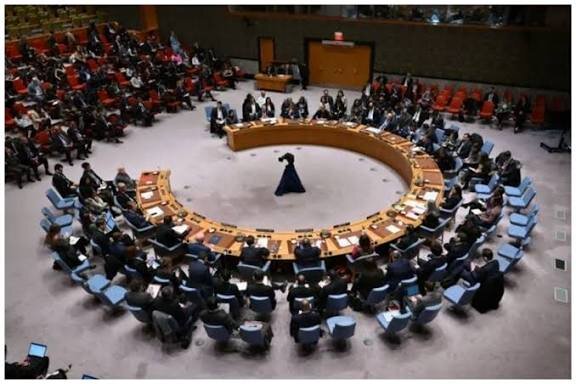Snapback is a nail in the coffin of international law!

TEHRAN – On Friday, September 19, 2025, the Security Council predictably failed to approve a draft resolution extending the suspension of anti-Iranian sanctions. The draft was prepared in response to the European troika’s move to trigger the snapback mechanism, which would reinstate UN sanctions on Iran.
Several factors contributed to this outcome, but perhaps the most significant was U.S. and Israeli pressure, which led even South Korea—the Security Council president and drafter of the resolution—to abstain from voting.
European inaction in the face of U.S. demands revealed that the snapback activation was a White House-engineered maneuver, carried out on its behalf by the three members of the European troika.
However, China and Russia have explicitly opposed the European countries’ action on at least three occasions during this period, considering it illegal and refusing to accept it. China and Russia seek to convey a clear message to the West that the unilateral decisions of the Americans will no longer be the basis for their actions on international issues.
The behavior of Western countries at this stage, in addition to destroying the rotten remnants of the JCPOA, put another nail in the coffin of international law. Besides exposing the failure of international legal mechanisms to uphold nations’ rights, this behavior further entrenched global public distrust of the West.
Although Iran’s conduct demonstrated that, despite intense pressure and hostility, it still regards dialogue and diplomacy as the superior option, it remains unwilling to compromise its national interests and security and is determined not to repeat the bitter experience of the JCPOA.
Furthermore, the yes vote of Pakistan and Algeria to the resolution, along with Russia and China, was predictable due to their relations with Iran and showed that Iran is not isolated in the international arena. Meanwhile, the low weight and position of the countries that voted against the resolution alongside the United States, Britain and France clearly show that the era of American unilateralism in international relations has expired.
To be more precise, although the West is trying to put our country in a special situation by building a consensus against Iran, Tehran's strategy of "active resistance" is intelligently disrupting the West’s hostile plans.
Moreover, strengthening ties with neighboring states and Tehran’s active participation in anti-Western coalitions—such as BRICS and the Shanghai Cooperation Organization—serve as reliable deterrents against the Western-Zionist axis in the future.
The events that took place at the UN Security Council meeting showed that the balance of power in the world order has practically changed, and that Western powers can no longer continue the model of American unilateralism.
The clear statement of China and Russia in which they announced they will not commit themselves to the return of anti-Iranian sanctions should also be considered a clear sign of the effective role of new international coalitions in the world. In practice, they are seriously challenging the structures of the existing order and promises a change in the geometry of power in the future world.
Leave a Comment